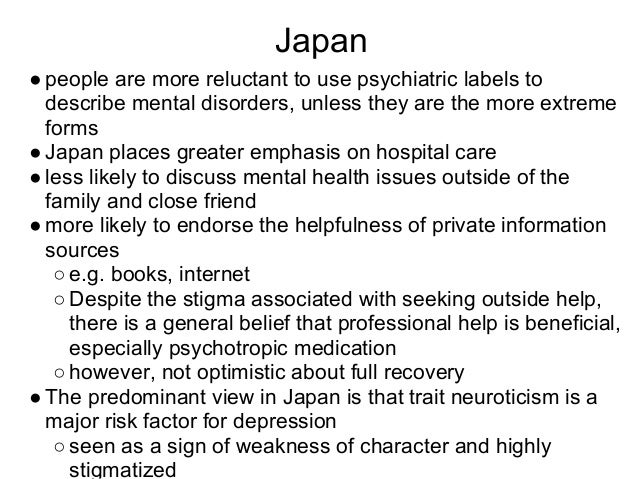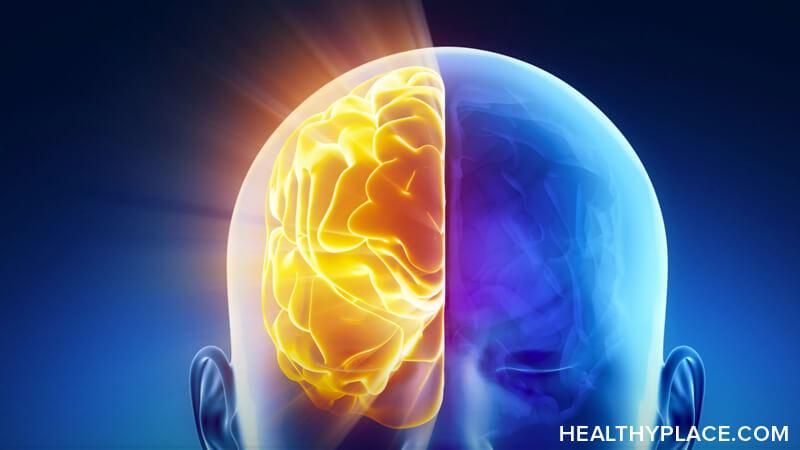43 mental health labels stigma
Psychiatric Labels Cause Harm by Stigmatizing People - The Psychology Of Psychiatric labeling is an extremely common practice employed by mental health practitioners, and seems to be growing in popularity (Timimi, 2014). Key Terms associated with Psychiatric Labeling: - Stigma: any attribute, trait or disorder that causes a person to be labeled as unacceptably different from "normal" people (Centre for Addiction ... Diagnostic labels: helpful or harmful? - National Elf Service Clearly, labels play a significant role in mental health stigma and should be carefully considered when trying to reduce stigma and improve well-being for people with mental health conditions. The role of labelling in stigma development should be considered within broader contexts of social structures that perpetuate stigma's harms.
Labeling of mental disorders and stigma in young people There were no significant associations between label use and the stigma components of "stigma perceived in others", "reluctance to disclose" and for the most part "social distance". Most mental health labels were associated with seeing the person as "sick" rather than "weak" and accurate psychiatric labels had the strongest effect sizes.
Mental health labels stigma
250 Labels used to stigmatise people with mental illness The stigma against people with mental illness is a major barrier to help-seeking in young people for mental health problems. The objective of this study was to investigate the extent of stigma in ... Mental illness stigma - dealing with stigma and how to reduce it ... In relation to mental illness, stigma is when someone is marked or discredited somehow, or reduced from being a whole person to being a stereotype or labelled as a collection of symptoms or a diagnosis (e.g. 'psychotic'). The meaning of the word stigma is a mark, a stain or a blemish. People with mental illness may face stigma — they may ... Mental health: Overcoming the stigma of mental illness Stigma is when someone views you in a negative way because you have a distinguishing characteristic or personal trait that's thought to be, or actually is, a disadvantage (a negative stereotype). Unfortunately, negative attitudes and beliefs toward people who have a mental health condition are common. Stigma can lead to discrimination.
Mental health labels stigma. Why is There so Much Stigma Surrounding Mental Illness? Mental health stigma stems from an array of factors and misconceptions including: ... Consequently, these labels can be paired with stigmatizing beliefs that prevent people from speaking out. It's more important than ever, with mental illnesses on the rise, that we educate ourselves about mental health stigma, and work towards eradicating it ... Reframing Mental Health Labels - NAMI: National Alliance on Mental Illness To make matters worse, mental health labels are often associated with stigma. For me, these labels represented my shame and the stigma of how others would perceive me. I let those letters degrade my sense of worth. I saw myself as unable to do things other people can. Why Labels Can Be Harmful When You Have Mental Illness OCT. 20, 2021 By Cindy Tillory When you are young, society seems to hand out labels like candy on Halloween. Growing up, I was labeled "the Black kid," "the weirdo," "the nerd," "the fat kid." The world around me seemed to dole out these categories without a second thought, and I let them define me throughout my childhood. The Truth About Mental Health Labels and Stigma One thing that continues to be a difficulty with mental health is the stigma of having a mental illness (perceived or otherwise). For me, I used to believe that having a mental illness meant I had a label I couldn't shake; a label that defined me, that made me feel less. Inferior. Broken. Broken. I still struggle with this thought.
Beyond Labels: Reducing Health-Related Stigma | RTI This is stigma. Stigma keeps people from accessing the best possible care. People with substance use disorders, infectious diseases, mental health, or other health conditions often feel judged and blamed by family, friends, and healthcare providers, which can keep them from getting the care they need. Stigma has consequences. Before You Label People, Look At Their Contents The stigma of mental illness is real, painful, and damaging to the lives of people with mental illness. Stigma prevents them from getting the treatment and support they need to lead healthy, normal lives. Stigma discourages people from getting help. At any given time, one in four adults and one in five children experience a mental health problem. Mental Health Stigma: Statistics, Causes, and Effects Here are some statistics on mental health and its stigmatization: Only 16.5% of individuals with depression worldwide seek help, and stigma around mental health is one of the primary reasons. Over 50% of individuals will experience a mental health disorder in their lifetime, making such conditions more common and relatable than previously ... Stigma, Prejudice and Discrimination Against People with Mental Illness Self-stigma refers to the negative attitudes, including internalized shame, that people with mental illness have about their own condition. Institutional stigma, is more systemic, involving policies of government and private organizations that intentionally or unintentionally limit opportunities for people with mental illness.
Labeling and Stigma (Chapter 29) - A Handbook for the Study of Mental ... This chapter begins with some background on how a consideration of these issues developed in mental health sociology. This selective review provides a frame for examining extant issues and evidence concerning labeling and stigma as they pertain to mental illnesses. Mental health labels can save lives. But they can also destroy them ... Yes, there is stigma, but not the rampant sticky, staining discrimination one gets with diagnoses associated with serious mental illness. With the latter, diagnosis can produce what the philosopher... How Using the Right Language Can Destigmatize Mental Illness These labels come from the general public too, so Marcum explains that it takes more than just a shift in healthcare providers to help reduce the effects of the stigma associated with mental health. "This article supports what research has already shown in terms of the damaging effects of stigma and how it can prevent people from accessing the ... Stigmatizing Words, Labels - HealthyPlace When talking mental health, stigma refers to the misinformed perceptions and ideas about mental illness and those with it. It's a big component in why people feel ashamed to have a mental illness and suffer in silence instead of seeking mental health treatment and understanding that mental illness is just an illness.
Stigma and discrimination | Mental Health Foundation Social isolation, poor housing, unemployment and poverty are all linked to mental ill health. So stigma and discrimination can trap people in a cycle of illness. You may face more than one type of stigma: for example, you may also be stigmatised because of your race, gender, sexuality or disability. This can make life even harder.
Labels Hurt. Examining the Impact of Mental Health Stigma Below are some of the harmful consequences associated with mental health stigma: Increased psychiatric symptoms and reduced prognosis. Reluctance to seek treatment or stick with it. Social isolation Lack of understanding by family, friends, coworkers, or others Fewer opportunities for work, school, social activities, or trouble finding housing
Stigma around mental health - Mind Stigma & misconceptions Mental health problems - an introduction Explains what mental health problems are, what may cause them, and the many different kinds of help, treatment and support that are available. Also provides guidance on where to find more information, and tips for friends and family. View this information as a PDF (new window)

59 best Physical Health images on Pinterest | Fitness tips, Health fitness and Mental health
Removing Self-Stigma from Mental Health Labels | HealthyPlace Seems the word "mental" is unnecessary and redundant label. People can say cancer and relate, treat, and understand without additional labels. People can say depression, ADHD, anxiety and relate, treat, and understand without the word "mental" in front of illness or health. It only seems to create more stigma.
Stigma: Mental Health & Substance Abuse - American Addiction Centers Research has demonstrated that stigma creates obstacles to seeking treatment for substance use disorders or mental illness and leads to negative health outcomes. A group of leaders from the National Institutes of Health define stigma as "negative attitudes toward people that are based on certain distinguishing characteristics."
Why I Believe We Should Look Beyond Mental Illness 'Labels' Happens every time. Having a label can lead to other things such as stigma and discrimination. According to the Canadian Mental Health Association, "The lives of people with mental health conditions are often plagued by stigma as well as discrimination. Stigma is a negative stereotype.
The "Attention-Seeking" Label and the Stigma It Represents - Mental Health The attention-seeking label is thrown around a fair bit in mental health care.\ Where I work, a lot of the staff aren't trained mental health professionals, and most of the regular nursing staff are pretty fresh out of school. I think both of these factors contribute to a tendency to quickly leap to the conclusion of attention-seeking.
250 labels used to stigmatise people with mental illness The stigma against people with mental illness is a major barrier to help-seeking in young people for mental health problems. The objective of this study was to investigate the extent of stigma in relation to treatment avoidance in 14 year-old school students in England in relation to how they refer to people with mental illness. Methods
The stigma of mental illness: effects of labelling on public attitudes ... Labelling has practically no effect on public attitudes towards people with major depression. Conclusion: Our findings illustrate the need for differentiation, differentiation between the different components of stigma as well as differentiation between the various mental disorders. Publication types Research Support, Non-U.S. Gov't MeSH terms
Mental health: Overcoming the stigma of mental illness Stigma is when someone views you in a negative way because you have a distinguishing characteristic or personal trait that's thought to be, or actually is, a disadvantage (a negative stereotype). Unfortunately, negative attitudes and beliefs toward people who have a mental health condition are common. Stigma can lead to discrimination.
Mental illness stigma - dealing with stigma and how to reduce it ... In relation to mental illness, stigma is when someone is marked or discredited somehow, or reduced from being a whole person to being a stereotype or labelled as a collection of symptoms or a diagnosis (e.g. 'psychotic'). The meaning of the word stigma is a mark, a stain or a blemish. People with mental illness may face stigma — they may ...
250 Labels used to stigmatise people with mental illness The stigma against people with mental illness is a major barrier to help-seeking in young people for mental health problems. The objective of this study was to investigate the extent of stigma in ...











Post a Comment for "43 mental health labels stigma"